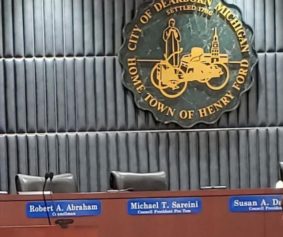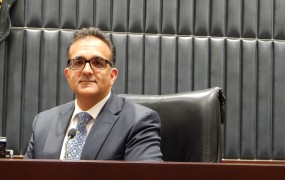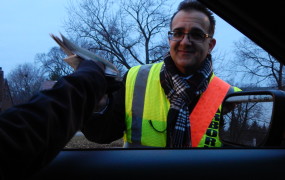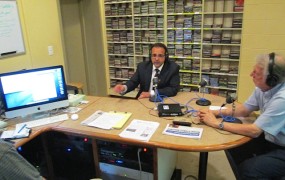Dearborn City Council Holds Virtual Study Session to Discuss Taxes and Other Topics
Thursday, April 9th, 2020 @ 3:32AM
This article is republished from Press & Guide, originally written by Briana Gaskorski and can be found here.
Despite the global pandemic, the Dearborn City Council is continuing on with its meetings and budget workshops.
During the budget overview and tax portion of the workshop, Finance Director Ginger Burke-Miller advised the Council to be prepared.
“COVID-19 has really shed light on the essential resources available in the city,” she said. “We should be prepared for a difficult few years ahead as property tax values and local community stabilization are concerns.”
Some financial challenges that Deputy Finance Director Michael Kennedy pointed out included a millage that is set to expire.
“A 3.5 millage and a 1.0 (mill) library millage expire at the end of fiscal year 2022,” he said. “We are also facing competing for resource demands and retirement program liability funding as some financial challenges.”
Councilman Mike Sareini said because of this, it’s important that the residents are looking at the budget.
“They need to be involved,” he said. “We asked our residents for an emergency 3.5 mills over and above and almost 10 years later it expires and we need to get aligned to be prepared for that.”
Sareini also said based on the data provided, $3.4 million would be coming from the general fund reserves.
“The subsidy is just saying this is what is generated vs this is what is coming from the general fund,” he said. “So with this proposed budget, the subsidy is $3.4 million out of the reserves.”
The information provided by Kennedy showed that while $134.7 million would be generated in revenue, the expenses are expected to be at $138 million which would cause the $3.4 million in subsidies.
“The biggest difference is due to the bond that we had gotten to meet the requirement for post-employment healthcare,” he said. “We have to start paying that back so that’s why we see revenue of $4.5 million for police but an expense of $48.5 million and revenue of $4.7 million for fire but an expense of $32.8 million.”
Sareini said that while police write tickets, that revenue isn’t considered for the Police Department.
“The revenue from tickets and fines is considered in the courts,” he said. “Not the police. So the courts having a revenue of $5.8 million may actually be due to ticketing and fines generated by the Police Department.”
The other post-employment benefits bonding that was done for the 2019 budget also caused the general fund payroll amount to appear skewed.
“The total general fund payroll in FY 2018 was at $88.9 million,” Kennedy said. “Due to the bond that was issued in FY 2019 of $39.3 million, the payroll amount looks like it’s $133.7 million, but if it were to be normalized it would have equaled out to approximately $94.4 million in 2019. In FY 2020, the payroll was $97.8 million but in the 2021 budget, the proposed payroll is set at $102.4 million.”
Sareini said that he’s concerned about the reserves running out.
“We cannot sustain just by spending more and more,” he said. “We have to reign in this spending because we keep pulling more and more from the reserves and what happens when it runs out?”
Overall, Sareini said that he is pleased with the council’s progress.
“This is something I had wanted us to do for a long time,” he said. “I think these study sessions are going great. I’m very pleased with what we’ve been given and that we are getting the full budget proposal in advance and before the sessions so we can be prepared to discuss them, especially because you have to know what you have before you start spending.”
Categories: Latest News




















